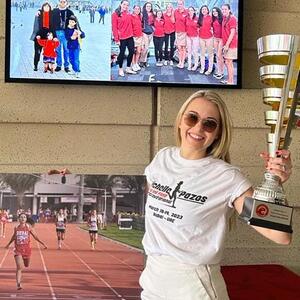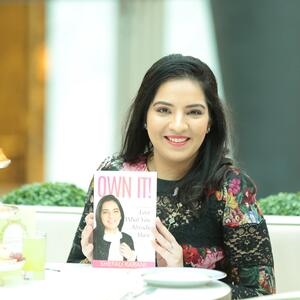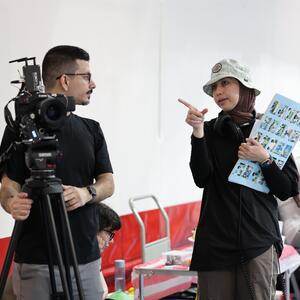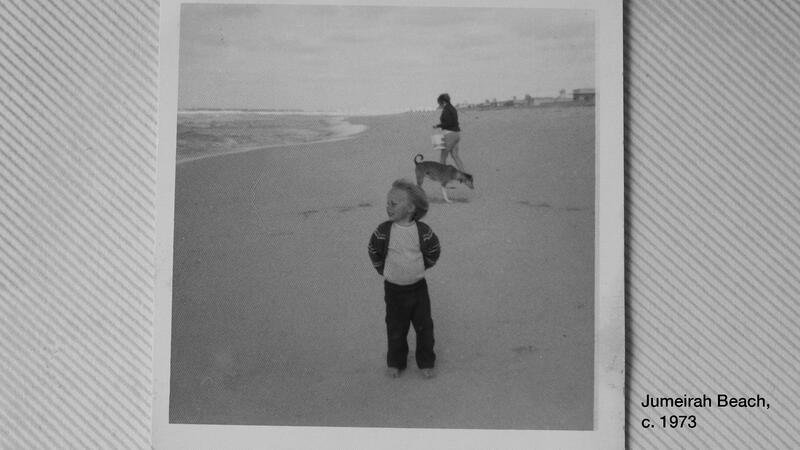
College: Drake University; Loyola University
Occupation: Lawyer
Current City: Dubai
Deacon Powell has great memories of his elementary and middle school years at the old campus of the American School of Dubai (then called Jumairah American School). He remembers, in the 1970s and ‘80s, playing off-the-cuff games of football, baseball, and basketball with his friends on sports fields and courts after school, on weekends, and at every other opportunity. While middle school feels far from life as a senior director on McDermott Marine Construction’s in-house legal team, Powell says his time at ASD set him up for success.
“ASD was K-8 for me, so it was really just academically foundational,” Powell says. “In other ways, though, it set the stage for what’s turned out to be the rest of my life.” At ASD, Powell says, he is surrounded by people from everywhere in the world. “Just as I lived, schooled, and played at ASD, my career has seen me live, work, and play in different countries, and always with a very multinational crowd.”
A lot has changed since Powell’s time as a student. In 2010, ASD relocated from Jumeirah to the 23-acre campus at Al-Barsha, with 100 classrooms, two libraries, a sustainable garden, and more. In place of the packed dirt ballfields, Powell recalls, students playing on lush new softball and baseball fields with sweeping views of the city, not to mention access to two 25-meter swimming pools, six tennis courts, a state-of-the-art fitness center, and a climbing wall.
But some things about the school are still very much rooted in how they have always been. For example, ASD’s diversity: Of 1,900 K-12 students on campus today, 76 different passports or nationalities are represented. And the school is a microcosm of the bustling global hub around it. One of the fastest-growing and most diverse cities in the world, Dubai is home to 200 nationalities. Over 80% of the city’s residents were born abroad. On any given day, one might hear Arabic, English, Hindi, Urdu, Bengali, Tamil, Tagalog, Persian, and Chinese being spoken on the street.
“Growing-up in Dubai and going to ASD helped demystify the unfamiliar,” Powell says. “That’s not saying I’m so world-weary and nothing impresses me anymore; I’m more likely to be awed now more than ever before. Rather, there’s no fear in what’s foreign simply because it is new to me.”
UAE Minister of Tolerance SheikhNahyan Bin Mubarak Al Nahyan believes this diversity is a key driver of prosperity and development across social, economic, educational, and cultural spheres. ASD helps students, like Powell, learn how to move confidently and open-mindedly through the world early on in life. It also fosters innovation and creativity — something long evident on the ASD campus, but now backed up by science. In 2017, a study of diversity across the workforces of thousands of the US’s largest publicly traded companies found that companies with the greatest racial, religious, ethnic, and gender diversity were more innovative, resilient, and productive than companies where many of the workers were from similar backgrounds, cultures, and walks of life.
Currently, Powell credits the vast array of different perspectives and experiences that surrounded him at ASD as part of the foundation for the communication skills and creative approaches demanded by his job in law. “A healthy respect for the new and different helps me vet perhaps novel solutions to my clients’ business issues,” he says.
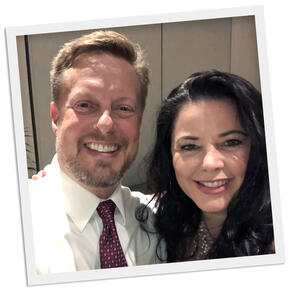
Since ASD, Powell has lived all over the world from Houston and New Orleans, to Singapore, Malaysia, and back to Dubai, where his children attended ASD from 2005 to 2009. His classmates were from all over, he says, but they were a tight-knit community, and he was happy to be a Legacy Family—a ‘second generation’ family, in that one or both parents attended ASD as a student—so his own children could get that experience for themselves.
“ASD engendered a strong sense of belonging to a family, or at least a close community. Maybe not a wildly sophisticated community — we had some characters back in the day, for sure — but being ASD people was our identity. I miss that connection. I am sure it is still the case at ASD today.”

